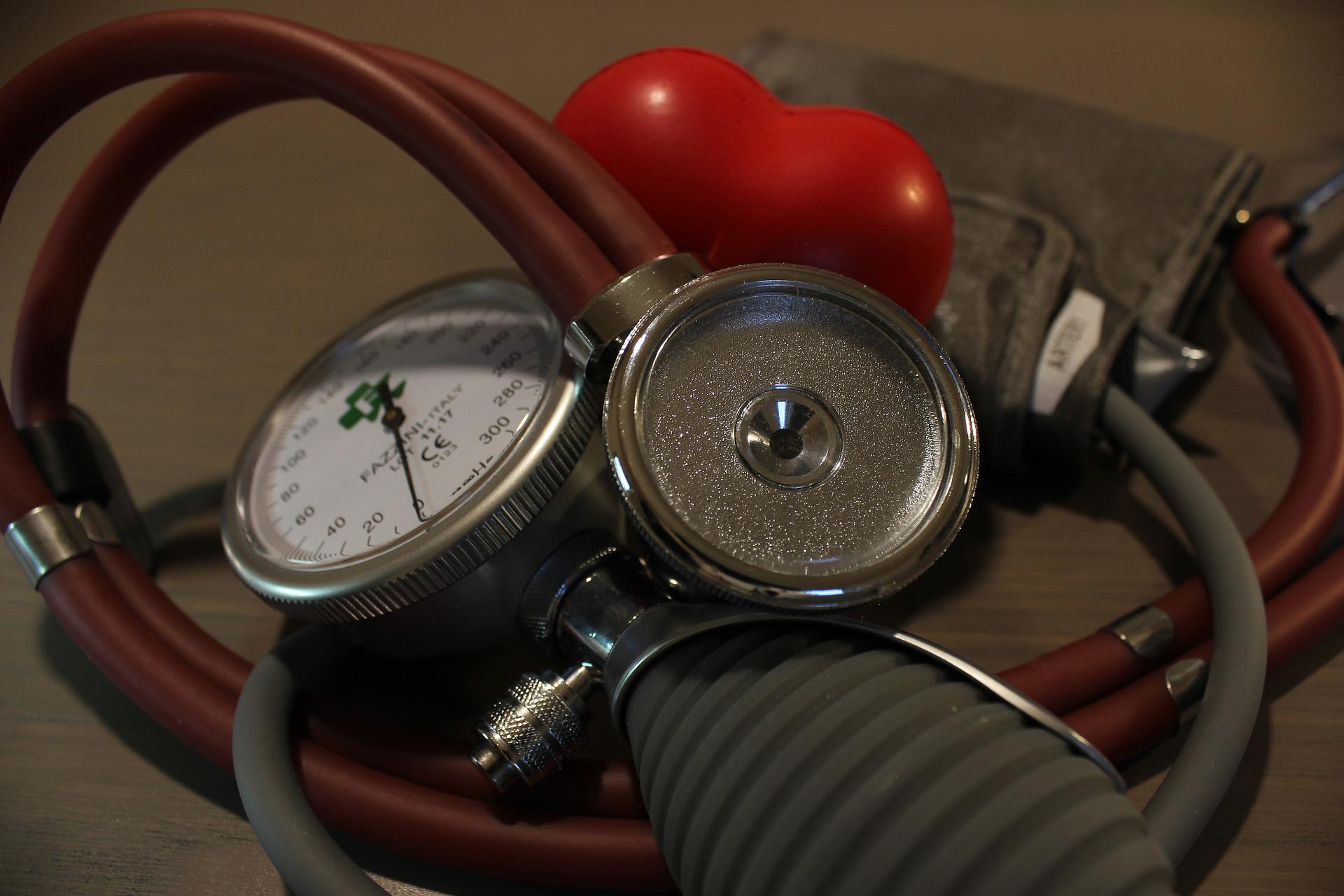High blood pressure (hypertension) in senior citizens must be treated, and most doctors agree that prompt diagnosis and aggressive treatment are the suitable approaches. That being said, studies have suggested that slightly higher than normal blood pressure in older adults may protect heart and brain function. This article discusses high blood pressure in seniors – what causes it, and how it can be prevented or treated.
Blood pressure is the force that blood creates by pushing against the walls of the blood vessels on its way through the body. Blood pressure is represented by two numbers, one over the other, representing systolic pressure (the upper number) and diastolic pressure (the lower number).
* Systolic pressure is measured when the heart contracts or beats.
* Diastolic pressure is measured when the heart relaxes between beats.
Symptoms of Hypertension in Seniors
As many as one-third of people with high blood pressure are unaware of their condition. This is why taking proper measurements regularly is so important and why physicians check all patients’ blood pressure. As it pertains to high blood pressure in seniors, symptoms start to manifest only at dangerously high levels. These late symptoms may include intense headaches, fatigue, confusion, vision issues, breathing difficulties, chest pain, irregular heartbeat, or blood in the urine.
If an elderly person is experiencing any of these symptoms, they should seek a doctor’s care immediately. They may be having a hypertensive crisis that could lead to a heart attack or stroke.
What Is Considered Normal Blood Pressure?
Your blood pressure fluctuates throughout the day, and it’s lowest when you sleep and can become elevated when someone is exercising or stressed out. However, blood pressure should usually be stable, ideally under 120/80. Physicians like to see lower readings, but for seniors, too-low blood pressure can become an issue because it can cause dizziness and lead to falls. In most cases, a physician will prescribe medication once the reading reaches 130/80 mmHg or over. Here are some of the common causes of hypertension:
- The overmedication of older adults is a serious problem. Treating multiple conditions – each with its own prescription medication – can add up to taking many different daily pills. Statistics show that most seniors take approximately ten pills per day! Each one of them can have side effects, including hypertension.
- Excess medication can also result in orthostatic hypotension, defined as a temporary drop in blood pressure when someone stands up. This pressure drop can lead to dizziness and cause a senior to fall. If this happens frequently, the physician should rethink the medication dosage.
- Another condition associated with aging is atherosclerosis. High blood pressure occurs when the disease reduces the diameter of the arteries. The arteries harden and become less elastic, making adequate expansion more difficult. This results in isolated systolic hypertension in the elderly. The diastolic pressure may remain steady, leading to a disparity between the systolic and diastolic pressures.
High Blood Pressure Could Be Beneficial
As referenced above, older adults over 80 may benefit from slightly elevated blood pressure. Hypertension may indicate that the heart is strong, still pumping blood with vigor. Also, when more blood reaches the brain, it can protect seniors from dementia. Therefore, an otherwise healthy 85-year-old male’s blood pressure can be slightly elevated without concern.
In contrast, seniors with diabetes and kidney disease should strive for lower blood pressure levels. Therefore you can see that simply stating one set of numbers is not an effective way to determine the best blood pressure level for an individual.
What are the Risk Factors for Hypertension?
Many risk factors contribute to the onset of high blood pressure. Some, such as age, can’t be changed, but most factors can be mitigated. Making healthier choices can both prevent and treat hypertension without medication.
Unmodifiable Risk Factors: Age, sex, race, and family history all play a role in developing high blood pressure – and none of them can be changed.
- Age – Men over 45 and women over 55 have the highest risk of developing hypertension.
- Sex – Statistically, men develop high blood pressure earlier. Women are protected by estrogen until menopause; then, the risk becomes about equal.
- Race – Black people are most at risk of hypertension, followed by Caucasians, and Asians have the lowest risk of developing the condition.
- Family history – People with a family history of hypertension are at higher risk.
Modifiable Risk Factors: Many lifestyle choices can affect the onset of high blood pressure. These include weight, diet, exercise, smoking and drinking, salt intake, and stress levels.
- Weight – Those who are overweight and have excessive BMI are at higher risk.
- Diet – Seniors should eat a diet rich in fruits and vegetables, low-fat dairy, eggs, and lean meats.
- Exercise Level – A minimum of 30 minutes of daily aerobic physical exercise is beneficial for preventing hypertension.
- Smoking – Smoking elevates blood pressure and damages the arteries in the long run. High blood pressure is only one of the adverse effects on the body.
- Salt intake – Seniors should limit salt intake and avoid processed foods with high sodium levels.
- Stress – Stress raises blood pressure, which can cause severe damage over time.
High blood pressure can cause many serious illnesses if left untreated. These include an enlarged heart, hardening of the arteries, kidney failure, vision problems, and aneurysms.
If you or a loved one suffers from hypertension, regular doctor’s visits and proper treatment can ensure a healthier life.
A Banyan Residence is an assisted living and memory care center in Venice, Florida.

